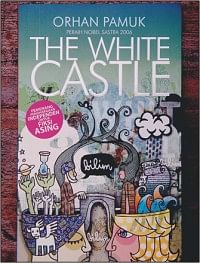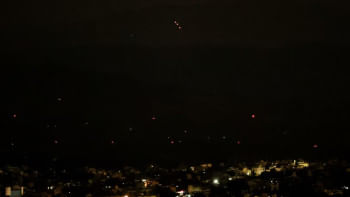Experiencing an embryonic narrative voice

The White Castle
Orhan Pamuk
Faber and Faber
The White Castle is a memoir the fictional memoir of a young Venetian scholar with the knowledge of science who is captured by the Turks. His commonsense medicinal skills appear uncommon to the Pasha and this saves his life, though all his companions suffer death. Soon our nameless narrator is offered a position in society if he converts to the public faith. At his refusal to be a convert, he is tormented and one day ordered to be beheaded. This is when a courtier called Hoja, who considers everybody else 'fools', intrudes and saves the narrator's life. Our miserable scholar becomes a slave to Hoja.
The narrator is intimidated by Hoja for the first few days of his slavery. Hoja wishes to learn everything that the young scholar knows. Together they develop fireworks for the infant Sultan which amazes everybody. The narrator even shares his knowledge of astronomy with Hoja. As time passes by, the ice between them thaws, and the slave becomes the master while the master becomes the slave. They fuse into each other's personalities. They look alike. They think alike. They stand in front of a mirror scrutinising each other's bodies to count the similarities only to realise that there is no difference except Hoja's beard. The mysterious relationship between the master and the slave propels the story forward. They start to be inspired by each other. Hoja puts forward several scientific theories but discards them if the narrator disapproves. They want to know more of each other. Hoja beats the narrator in order to hear the narrator's past and vice versa.
Like all the other novels of Orhan Pamuk, at this point, I couldn't help but notice that this is another effort to represent the amalgamation of the East and the West. However, it is not a peaceful fusion it is indeed an exothermic reaction. Hoja harbours a desire to preserve the dominance of the Ottoman Empire over the Europeans. He compels the narrator to teach him the science of weapon making. But ere he can proceed with his desire, a plague falls upon the kingdom. Death is everywhere.
With the help of statistics and public precautions, Hoja and the narrator prevent many deaths and once again prove their value in the eyes of the Sultan. Hoja selfishly wants to shoulder all the praises himself and to fortify his ground he predicts the future of the Sultan's lion. Events turn out the way he predicted and the royal astrologer is replaced by Hoja.
Finally the time comes for Hoja to make his forgotten desire a reality. He is financed by the Sultan to create a weapon that can be used against the Poles and the eponymous white castle. The unexpected result is up to you to find out.
The White Castle is a disappointing novel if compared to the other novels of Pamuk. The dryness of the Turkish lives here is invoked extremely well by the straightforward plot and perhaps this aridity makes the novel a parched date fruit juiceless but exotic nonetheless. Thematically Pamuk has attempted to preach the failure of modernisation but it is too facile and hardly effective in changing the readers' mindset. However, the one idea that truly came up in the novel is that the Ottomans lost their superiority because they lacked technological progress for which only the people themselves are to be blamed. When the plague arrives, the citizens conclude that it is from God and nobody should try to prevent it. When Hoja emerges with the huge weapon, he is labelled an inauspicious man amidst society. If such be the outlook of the gifted intelligence of human beings, then how can a race withstand the sands of time?
One of the blurbs elevates the novel to the status of Marquez. But in my opinion, that blurb was written by an intoxicated hand! In The White Castle, the reader will find no humour and there is no vivid description of the surroundings or even the characters themselves. What we read is a step by step analysis of the narrator's and Hoja's minds under a chain of unforeseen circumstances and it is unfolded in a serious tone. Since this is Pamuk's first book, I would like to mention that this is just a tiny bit of what he is capable of doing, as he does in Snow or My Name Is Red.
The White Castle is not a must-read but a good read if you are willing to experience Pamuk's embryonic narrative voice.
Efadul Huq is a freelance writer and book reviewer.

 For all latest news, follow The Daily Star's Google News channel.
For all latest news, follow The Daily Star's Google News channel. 



Comments